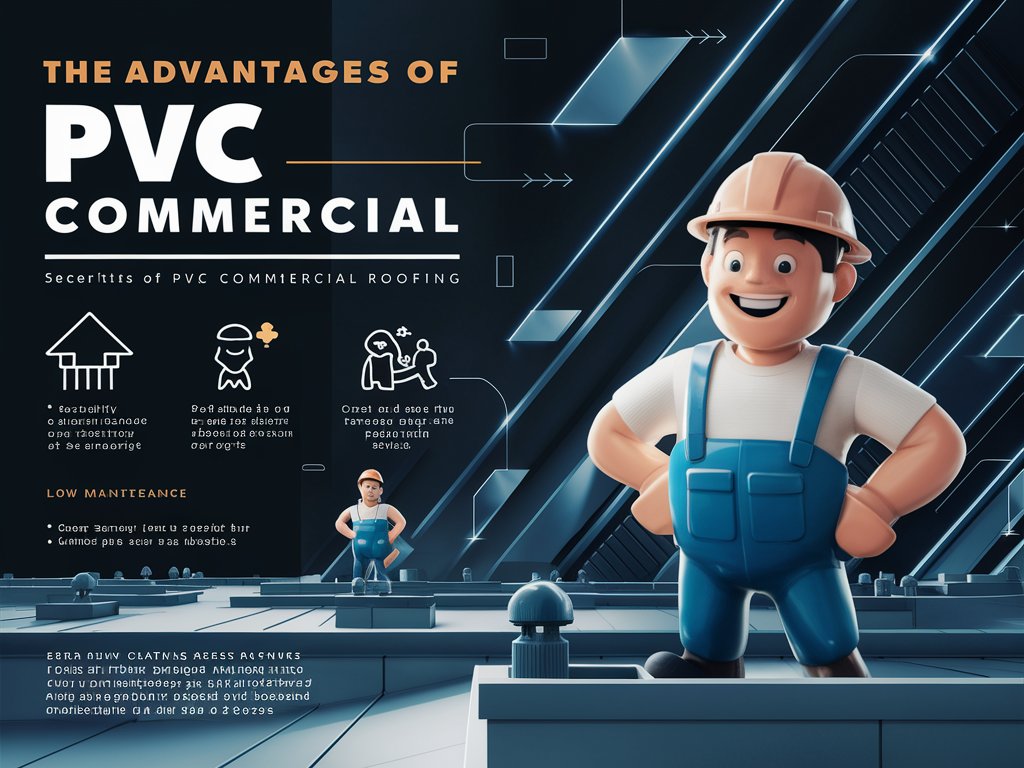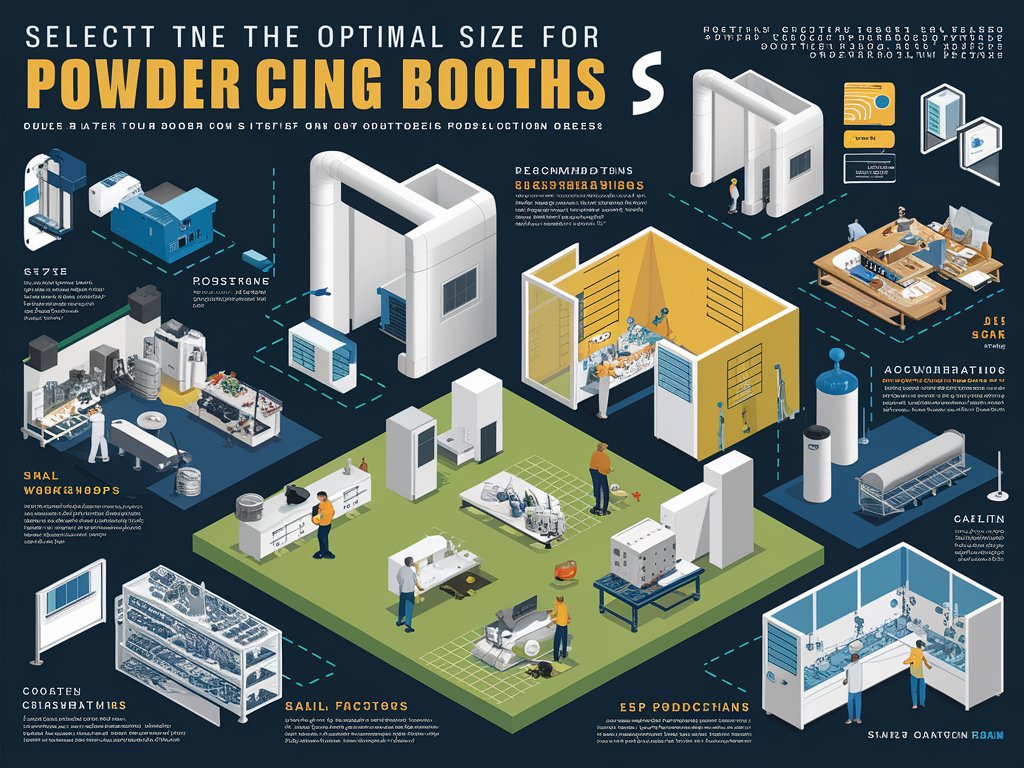Business
Explore the Advantages of Selling Your Car Online After the Holidays
Published
6 months agoon

If you’ve been pondering the idea of selling your car, there’s no better time to do it than after the holidays. The period following the festive season offers a unique set of advantages for those looking to part ways with their vehicles. In this blog post, we’ll delve into the key reasons why selling your car online after the holidays can be a smart move.
More potential buyers
After the holidays, there’s often an influx of potential buyers in the market. Many individuals receive cash gifts or tax refunds during this time, making them more inclined to invest in a used car. This increased pool of potential buyers can significantly boost your chances of finding the right buyer for your vehicle. By strategically timing your sale, you tap into a broader audience actively seeking their next set of wheels.
Less competition
Unlike during other times of the year, dealerships are eager to clear out old inventory after the holidays. They want to make room for the latest models, creating a scenario where there’s less competition for those looking to sell their cars privately. With fewer alternatives available from dealerships, your online listing gains prominence, and potential buyers are more likely to consider your vehicle.
Off-season timing
Selling your car during the winter months might seem counterintuitive, but it’s actually a strategic move. Winter is traditionally a slower season for car buying, as many people prefer to avoid the hassle of dealing with cold weather and icy roads. However, this presents an opportunity for you as a seller to stand out. Listing your car during the off-season means your vehicle will receive more attention because demand is lower. Your car becomes a ray of sunshine in the winter market, attracting serious buyers looking for dependable transportation.
Post-holiday vehicle inspection
Getting your car ready for sale often involves addressing any lingering issues or performing routine maintenance. After the holidays, repair shops and service centers are generally less busy. This is the ideal time to schedule a thorough inspection and address any necessary repairs. A clean inspection report not only ensures your car is in top shape but also builds buyer confidence. Knowing that the vehicle has recently undergone a comprehensive check can be a significant selling point when communicating with potential buyers.
Potentially higher price
One of the most compelling advantages of selling your car online after the holidays is the potential for a higher selling price. With less competition from dealerships in the market, you have more room to negotiate and potentially secure a better deal when selling privately. Buyers may be willing to pay a premium for a well-maintained vehicle that meets their needs, especially when there are limited alternatives available.
In conclusion, timing is crucial when selling your car, and the period following the holidays presents a unique opportunity. By listing your car online after the festivities have concluded, you can tap into an increased pool of potential buyers, face less competition from dealerships, and stand out in a slower winter market. Additionally, taking advantage of the post-holiday lull to conduct vehicle inspections and potentially negotiating a higher price can further enhance your selling experience. So, if you’re considering selling your car, don’t hesitate to explore the advantages of selling it online after the holidays.
You may like
-


Smart Layering: A Guide to Efficient Outdoor Clothing Management
-


North South Tech: Your Premier Choice for Web Development and Management Software Solution
-


Pets and plants in long distance moving
-


Exploring the Advantages of PVC Commercial Roofing
-


The Growing Demand for Greensboro IT Support: Navigating the Future of Technology Services
-


Choosing the Best Size for Your Powder Coating Booths
Business
Smart Layering: A Guide to Efficient Outdoor Clothing Management
Published
1 week agoon
July 16, 2024
Key Takeaways:
- Understanding the fundamentals of layering for outdoor activities.
- How to select the appropriate materials and garments for various weather conditions.
- Tips for keeping your outdoor wardrobe versatile and functional.
Table of Contents:
- Why Your Choice of Material Matters
- Layering Basics
- Core Layers Explained
- Selecting the Right Insulation Layer
- The Importance of a Protective Outer Layer
- Accessorize Wisely: Enhancing Layering with Accessories
- Layering According to the Weather
- Maintenance Tips for Layering Pieces
- Sustainable Options in Outdoor Clothing
- Real-Life Case Studies
Why Your Choice of Material Matters
The selection of materials for each layer in a person’s outdoor wardrobe has critical implications for overall comfort and the functionality of the attire. Fabric properties vary widely, impacting their breathability, weight, moisture-wicking, and insulation efficacy. For instance, natural materials like merino wool are renowned for their ability to thermoregulate, offering warmth without overheating and cooling without chilling. At the same time, synthetic blends are prized for their resilience and quick moisture transport capabilities, ensuring a wearer’s skin remains dry and less prone to chilling post-exertion.
Layering Basics
We embark on an outdoor adventure, whether a leisurely hike or a rigorous mountaineering expedition, starting with a foundational understanding of effective layering. It is a strategic approach to clothing that involves selecting, combining, and utilizing different layers of garments to create a functional and adaptable attire system that responds favorably to weather conditions, activity levels, and personal comfort. One of the critical elements in successful layering is choosing a reliable base layer, found at retailers specializing in outdoor gear, such as Columbia Sportswear, who offer a diverse assortment of options designed for different climates and activities.
The essence of layering revolves around air trapping and moisture management. Utilizing air as an insulator between layers and ensuring timely moisture transportation away from the skin helps maintain a dry and temperate microclimate central to comfort and warmth outdoors. This necessitates a balance between insulation and ventilation; the layers selected must work in tandem to contain body heat while permitting sweat evaporation, thus sidestepping issues caused by damp garments, which can lead to rapid heat loss and potential hypothermia.
For those seeking a thorough dive into the science of effective layering, resources such as Outside Online offer in-depth examinations and expert insights into the nuance and strategies behind each layering decision tailored to specific outdoor situations.
The Science of Moisture Management
At the core of any layering approach is choosing materials for base layers that excel in moisture management, a quality paramount in maintaining comfort and avoiding hypothermal reactions when outdoors. Synthetic fibers such as polyester and nylon are particularly adept at wicking away moisture and facilitating quick drying. These materials close to the skin are imperative to minimizing the sensation of wetness and preventing the body from experiencing temperature drops post-activity. Brands devote significant research and development to optimize these fabrics’ technical properties, but it is imperative to follow care instructions to preserve these characteristics.
Core Layers Explained
The core layers are critical to the layering system as the initial defense against external temperature variations. Positioned closest to the skin after the base layer, core layers are tasked with managing moisture and providing an initial level of insulation. They are structured to be form-fitting, maximizing fabric-to-skin contact, which is central to efficient wicking. As with any component of stacking layers, these come in various weights and styles, allowing the wearer to adapt to their immediate environment and the activity level, from lightweight pieces suitable for mild climates to heavyweight options intended for chillier endeavors.
Selecting the Right Insulation Layer
As the name suggests, the insulation layer’s primary function is to retain body heat, and this layer generally occupies the middle spot in a layering lineup. Fleece jackets, down vests, and wool sweaters are standard selections due to their proficiency in providing warmth without the cumbersome bulk. Their design allows for trapping heat effectively while still facilitating freedom of movement, thus making them an ideal choice for outdoor adventurers. Choosing the suitable insulation layer depends on preference and practicality; size and compressibility matter if you pack and adjust layers throughout the day.
The Importance of a Protective Outer Layer
Bracing for what nature throws at you requires a competent outer layer. This layer acts as a fortress against rain, wind, and snow. A protective shell’s primary attributes are its resilience to weather and its breathability. Options range from soft shells, esteemed for their elasticity and breathability, favoring intense physical activity in moderate weather conditions, to hard shells that are paramount for protection in more severe, unpredictable climates. Contemporary design intelligently integrates adjustable features for venting and modifying how the garment sits on the body, ensuring that the wearer can regulate temperature effectively amid activities.
Accessorize Wisely: Enhancing Layering with Accessories
An intelligent selection of accessories can significantly boost the comfort and adaptability of your layering strategy. Small additions such as hats, gloves, scarves, or gaiters substantially impact retaining body warmth. The head, hands, and neck are areas where heat can quickly dissipate, and by addressing these zones, one can effectively modulate their body temperature. The beauty of such items lies in their ability to be easily added or removed in response to the body’s heat production or the rise and drop in external temperatures.
Layering According to the Weather
Weather awareness is indispensable to successful layering and overall readiness for the great outdoors. Sudden meteorological shifts, widespread in mountainous or coastal regions, necessitate a proactive and preemptive layering strategy. It’s recommended to consult accurate weather forecasts, such as those provided by The Weather Channel, and prepare accordingly, ideally bringing additional layers that can be easily donned or shed as conditions fluctuate. Staying ahead of the weather means greater comfort, safety, and enjoyment of outdoor pursuits.
Maintenance Tips for Layering Pieces
Each layer in your outdoor gear lineup requires specific maintenance to ensure longevity and peak performance. Diligent care practices, according to manufacturers’ guidelines, are vital. For example, technical fabrics often need a gentle wash cycle or hand washing to preserve technical properties such as waterproofing or breathability. Re-waterproofing with a DWR spray can also revitalize a garment’s weather resistance. Treating your outdoor apparel with care elongates its life and maintains its protective and insulative features, safeguarding against wear and tear.
Sustainable Options in Outdoor Clothing
The push for more environmentally responsible choices in all aspects of life extends to outdoor clothing. The industry’s response is seen in the emergence of products manufactured from recycled materials or through more ecologically considerate production processes. Brands that take definitive steps toward sustainability offer consumers the chance to make more meaningful purchase decisions that align with their environmental values. These sustainable garments often hold up longer than their conventional counterparts, reducing their environmental footprint over time.
Real-Life Case Studies
The real-world experiences of seasoned outdoor professionals and enthusiasts can be immensely educational for those looking to perfect their layering system. Detailed accounts of adventures undertaken in varying climates provide context to layering theory, spotlighting effective combinations and the versatility required to cope with the elements. Through such case studies, valuable lessons can be extracted and applied to one’s outdoor activities, improving preparedness and comfort during diverse adventures.

When it comes to selecting a reliable and efficient roofing solution for commercial buildings, PVC (Polyvinyl Chloride) roofing has established itself as a top contender. Known for its outstanding durability, energy efficiency, and versatility, PVC roofing is a popular choice among building owners and contractors. This article will delve into the composition, benefits, applications, unique features, installation tips, and maintenance advice for PVC commercial roofing.
Introduction to PVC Roofing
PVC roofing is a single-ply membrane roofing system composed of polyvinyl chloride and other additives that enhance its flexibility and performance. The material is known for its strength and resistance to various environmental factors, making it a reliable option for commercial roofing. PVC membranes are typically available in white, which provides excellent reflectivity and contributes to energy efficiency.
Key Benefits of PVC Roofing
PVC roofing offers numerous benefits that make it an attractive choice for commercial properties:
- Durability: PVC roofing membranes are highly durable and resistant to punctures, tears, and impact damage. They also exhibit excellent resistance to UV radiation, chemicals, and fire, ensuring long-lasting performance.
- Energy Efficiency: The reflective properties of PVC roofing help reduce heat absorption, leading to lower cooling costs and improved energy efficiency. This makes PVC roofing an eco-friendly option that can contribute to LEED credits.
- Low Maintenance: PVC roofing requires minimal maintenance due to its inherent resistance to dirt, debris, and biological growth. Regular inspections and cleaning are usually sufficient to keep the roof in optimal condition.
Applications and Suitability
PVC roofing is suitable for a wide range of commercial applications, including:
- Office Buildings: The energy efficiency and durability of PVC roofing make it ideal for office buildings, helping to reduce operational costs and provide a comfortable indoor environment.
- Retail Stores: PVC roofing’s reflective properties can help retail spaces lower their cooling expenses, creating a more pleasant shopping experience for customers.
- Manufacturing Facilities: The chemical resistance and durability of PVC roofing make it an excellent choice for manufacturing and industrial buildings where exposure to chemicals and heavy equipment is common.
Unique Features and Advancements
PVC roofing technology continues to evolve, offering enhanced features and benefits:
- Reinforced Membranes: Modern PVC roofing membranes are often reinforced with polyester or fiberglass, providing additional strength and dimensional stability.
- Heat-Welded Seams: PVC roofing seams are heat-welded, creating a strong, watertight bond that is resistant to leaks and other forms of water infiltration.
- Recyclability: PVC roofing is fully recyclable, making it an environmentally responsible choice that reduces waste and contributes to sustainability.
Installation Tips and Maintenance Advice
Proper installation and maintenance are crucial for maximizing the performance and lifespan of PVC roofing:
Installation Tips
- Surface Preparation: Ensure the roof deck is clean, dry, and free of debris before installing the PVC membrane.
- Proper Fastening: Use appropriate fastening methods and materials as specified by the manufacturer to secure the membrane and prevent uplift.
- Seam Welding: Utilize heat-welding techniques to create strong, watertight seams that prevent leaks and ensure the integrity of the roof.
Maintenance Advice
- Regular Inspections: Conduct routine inspections to identify and address any potential issues, such as punctures, tears, or loose seams.
- Cleaning: Keep the roof surface clean by removing debris and dirt regularly to prevent damage and maintain its reflective properties.
- Prompt Repairs: Address any damage or leaks promptly to prevent further deterioration and extend the life of the roof.
In conclusion, PVC commercial roofing offers a range of benefits that make it a top choice for various commercial buildings. Its durability, energy efficiency, and low maintenance requirements, combined with advancements in technology, ensure that PVC remains a leading option in the roofing industry. By following proper installation practices and maintenance routines, businesses can enjoy the long-lasting performance of their PVC roofs for many years to come.
Business
Choosing the Best Size for Your Powder Coating Booths
Published
2 months agoon
May 23, 2024
When it comes to optimizing your production facility, selecting the right size for your powder coating booths is a crucial decision that can significantly influence operational efficiency and cost-effectiveness.
This detailed guide will walk you through the key considerations to keep in mind while determining the ideal booth size for your specific needs. We’ll cover everything from assessing production requirements and available space to considering future scalability and consulting with industry experts. Let’s dive in and find the perfect fit for your facility.
Assessing Production Needs and Throughput Requirements
First and foremost, understanding your production demands is vital. How much volume do you expect to handle? Are your projects typically large or small? These questions are fundamental as they directly impact the size and type of powder coating booths required. For high-volume production environments, larger booths or multiple paint spray booths might be necessary to handle the workload efficiently without bottlenecks. Each project’s specifics, such as dimensions and turnaround time, must also be considered to maintain a smooth workflow.
Evaluating Available Space and Facility Constraints
Now, let’s talk about the space you have. Before you can decide on the size of your blast booths, you need to evaluate the physical area of your facility. Is space at a premium, or do you have room to grow? The layout of your facility will influence the type of booth you can accommodate—whether it’s a more compact, vertical setup or a sprawling, horizontal one. It’s essential to ensure that there’s enough room for not only the booth but also for safe and efficient operation around the booth area.
Considering Future Expansion and Scalability
Thinking ahead is key in business. As you look at the present requirements, it’s wise to also consider future growth. Will your production demands increase? If so, opting for scalable solutions in your powder coating booth setup can save you significant time and money down the line. This might mean choosing modular booths that can be expanded or reconfigured as your business grows and evolves.
Understanding Equipment Compatibility and Integration
Compatibility is another critical factor. Your new powder coating booth should seamlessly integrate with existing systems. This involves considering the technical specifications of the booth relative to your current machinery, such as conveyor belts or automated spray systems. Ensuring that all components of your production line communicate effectively with one another is essential for maintaining operational harmony and maximizing throughput.
Analyzing Budgetary Considerations and Cost Efficiency
Budgeting cannot be overlooked. While it’s tempting to go for the largest or most technologically advanced booth, it’s important to balance your needs with what you can afford. Cost-efficiency doesn’t just come from purchasing the booth but also from its long-term operation and maintenance costs. Consider energy consumption, filtration systems, and maintenance access when choosing your booth size and features, as these can significantly affect overall expenses.
Consulting with Manufacturers for Guidance
Lastly, don’t go at it alone. Consulting with manufacturers can provide invaluable insights into the latest technologies and trends in powder coating booths. These professionals can offer tailored advice based on your specific production needs, available space, and budget. Taking the time to discuss your options with experienced professionals can lead to better decision-making and a more optimized production environment.
By carefully considering these aspects, you can choose the best size for your powder coating booths that not only meets your current needs but also accommodates future growth. Remember, the right investment in your infrastructure is pivotal to enhancing your operational efficiency and ultimately, your bottom line.

Smart Layering: A Guide to Efficient Outdoor Clothing Management

North South Tech: Your Premier Choice for Web Development and Management Software Solution

Pets and plants in long distance moving

yt.be Activate: Activating YouTube with yt.be

Finance and Maneuver in Business

